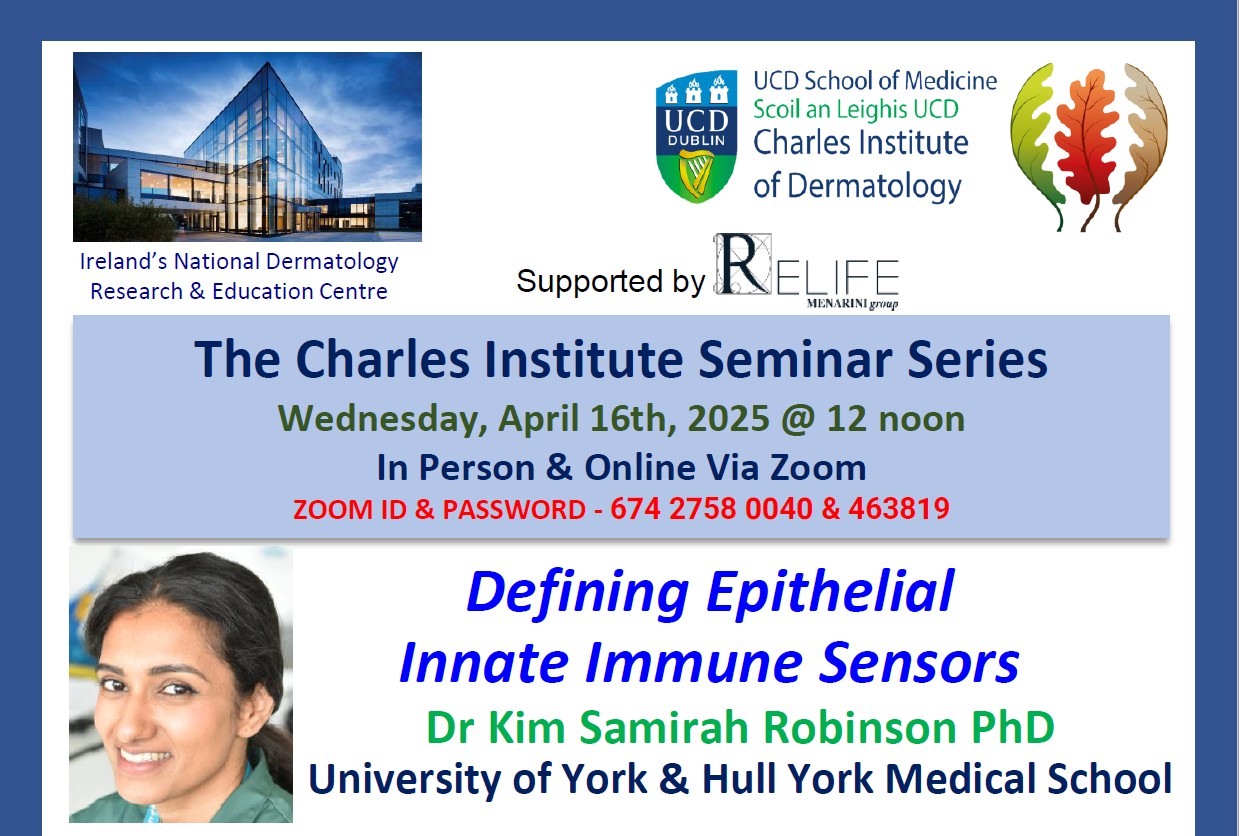Charles Institute Seminar Series 2024-25: ''Defining Epithelial Innate Immune Sensors'' by Guest Speaker Dr Kim Samirah Robinson
Thursday, 10 April, 2025
Share

Date of Talk: Wednesday, April 16th, 2025 @12PM
Location: In Person and Online Via Zoom
Talk Title: Defining Epithelial Innate Immune Sensors
Speaker Details: Dr Kim Samirah Robinson
University of York & Hull York Medical School
Short Biography:
Dr Robinson obtained a MSc in photo-dermatology and PhD in cutaneous oncology and molecular medicine from the University of Dundee in the UK. She then moved to A*STAR in Singapore to manage the Asian skin biobank, leading a team of scientific staff through industry, clinical and academic portfolios before joining the laboratory of Prof Franklin Zhong to study inflammasome biology in normal human skin. In Sept 2023 she joined the University of York and Hull York Medical School as lecturer and run a lab focused on Skin Innate Immunity and Inflammatory Skin Disease.
Abstract for talk:
The inflammasome is a multiprotein complex within immune cells that plays a crucial role in orchestrating the innate immune response.
It detects pathogenic microorganisms, danger signals or cellular stress, and activates a potent inflammatory response to signal for reinforcements to clear the damage. For two decades the function of the skin and airway epithelium-specific inflammasome sensor, NLRP1, eluded the field. Dr Robinson will present work illustrating how NLRP1 uses different molecular features to detect mechanistically distinct signals from harmful viruses (Robinson et al Science 2020), UVB (Robinson et al., 2022) and bacteria (Robinson et al., JEM 2023). Understanding these biochemical mechanisms has the potential to pharmacologically modulate the immune response.